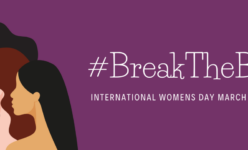
The Power of Personal Branding: Establishing Trust Before Transactions
In today’s hyper-connected, reputation-driven economy, personal branding is no longer an accessory to success—it is a fundamental business strategy. Whether you are an entrepreneur, a corporate leader, or an emerging professional, your personal brand defines your authority, credibility, and long-term influence.
For over two decades, I have witnessed how trust, reputation, and strategic positioning have determined the trajectory of individuals in business. One truth remains constant: people trust the person before they trust the business. Your name, expertise, and ability to communicate value precede any product or service you offer.
Why Personal Branding is a Business Imperative
The modern professional landscape is shaped by visibility, differentiation, and credibility. A strong personal brand ensures that when opportunities arise, your name is top of mind. The ability to build and sustain trust in competitive industries separates those who lead from those who follow.
Key advantages of a well-positioned personal brand:
- Enhanced Credibility – A thought leader is not self-declared; it is a position earned through consistent expertise, strategic communication, and demonstrated value.
- Competitive Differentiation – In a saturated market, your brand is what makes you distinct and irreplaceable.
- Business Growth & Opportunity – Whether securing high-value contracts, attracting investors, or leading an organization, your reputation influences decision-making at every level.
The Economics of Trust: Why People Buy Into People First
Data continues to reinforce a fundamental truth—consumers, investors, and decision-makers align with people they trust before engaging with a brand or service. Consider the impact of global leaders such as Oprah Winfrey, Sara Blakely, and Richard Branson—their personal credibility extends beyond their business ventures, reinforcing brand equity and market leadership.
A study by Edelman Trust Barometer reveals that individuals are more likely to trust company executives, subject matter experts, and industry leaders over corporate messaging. This underscores the necessity of positioning yourself as a trusted voice in your field before expecting engagement in business.
“Your personal brand is an asset—when leveraged effectively, it transforms visibility into influence, and influence into long-term impact.”
Key Components of a High-Impact Personal Brand
1. Authority Through Expertise
To be regarded as a leader, your industry expertise must be visible, relevant, and consistently communicated.
- Develop proprietary insights—be the source, not just a participant in industry conversations.
- Publish thought leadership content—whitepapers, keynote addresses, and high-value articles build credibility.
- Engage in strategic collaborations that reinforce your position as an industry leader.
2. Strategic Online Presence
Your digital footprint is now as critical as your resume or business portfolio. The way you present yourself online shapes the narrative around your expertise.
- Optimize LinkedIn and professional platforms with authoritative content.
- Control your Google search presence—your digital first impression matters.
- Ensure consistency across channels—credibility is eroded by conflicting messaging.
3. Visibility in Decision-Making Circles
Branding is not just about presence—it’s about positioning. High-impact professionals understand the necessity of being in the right rooms, on the right stages, and in front of the right decision-makers.
- Pursue high-value media exposure—visibility in respected publications reinforces authority.
- Speak at industry conferences—thought leadership requires engagement in pivotal conversations.
- Invest in high-level networking—strategic alliances elevate influence.
The Business Impact of Personal Branding
A well-managed personal brand translates to:
- Increased trust and engagement—leaders who are visible and credible drive higher stakeholder confidence.
- Greater business opportunities—partnerships, speaking engagements, and board placements align with high-impact personal brands.
- Sustainable influence—long-term market leadership is built on expert positioning and consistent thought leadership.
Final Thought: Personal Branding is a Leadership Strategy
For professionals and entrepreneurs alike, personal branding is not about self-promotion—it is about strategic reputation management and long-term credibility.
Your personal brand is an asset. When effectively cultivated, it is the most powerful differentiator in your career and business.



























